Ross Garnaut is usually professorial in his language. But the academic who wrote two voluminous climate policy reports for the former government used front-bar vernacular when asked where Wednesday’s historic climate announcement by China and the US has left Australia. “Up shit creek,” he said.
In the US, China and the EU the ambition of climate policy is growing.
In Australia it just keeps getting smaller. We have been shouting so long and so loudly about how we had to avoid getting “ahead of the world”, hyperventilating about how a relatively modest carbon tax would end economic life as we knew it (even after it was introduced and it didn’t) that we seemed not to notice we were in fact being left behind.
Having failed to get a cap and trade scheme through congress, President Barack Obama unveiled tough regulations for the power sector. And then, standing side by side with China’s President Xi Jinping, he has pledged cuts of 26%-28% below 2005 levels by 2025 – the next step beyond the existing promise to cut emissions 17% by 2020.
China had previously promised to cut the emissions intensity of its economy – emissions per unit of GDP – a measure that allowed absolute emissions to continue to rise. At the same press conference it pledged its emissions would peak in 2030 and then decline.
And in Australia? Well before the election the Coalition promised, in writing, to reduce emissions by 2020 by between 5% and 25%. But after the election that became 5% – and absolutely no more. Anything longer term we haven’t really got around to discussing.
The carbon tax has gone and government’s efforts to reduce the renewable energy target have stalled all investment in clean energy. The Coalition’s Direct Action policy is in place, but not the safeguards that might have slowed emissions growth across the economy.
Obama argues that “a low-carbon, clean-energy economy can be an engine of growth for decades to come” and the joint US-Chinese statement says “economic evidence makes increasingly clear that smart action on climate change now can drive innovation, strengthen economic growth and bring broad benefits”.
Tony Abbott still insists “coal is good for humanity” and its use should go “up and up and up in the years and decades to come” – but then cuts spending on the carbon capture and storage technology that, according to the Intergovernmental Panel on Climate Change, is the only way coal will be able to be used into the future.
It is, as the US is demonstrating, possible to reduce emissions by means other than a carbon price. Tough regulations or carefully targeted and rigorously assessed government incentives can also do the job.
But Direct Action, as it stands, is unlikely to be a viable alternative and its costs will certainly become prohibitive as Australia is required to reduce its emissions further – as Malcolm Turnbull kept telling us and has been repeatedly borne out by modelling (done by third parties because the government hasn’t done any, preferring as Abbott said during the election campaign, to just “have a crack”).
And so we find ourselves under extreme pressure to make much deeper cuts to emissions without any cost-effective policy to get us there. Not just up shit creek, but without a paddle.
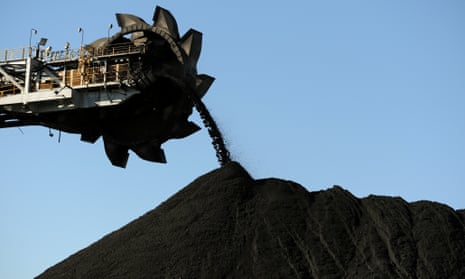
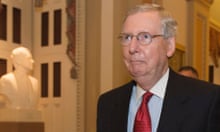
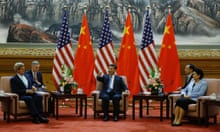
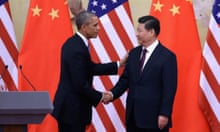
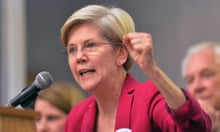

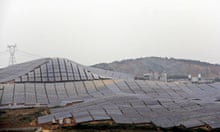
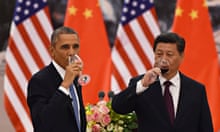
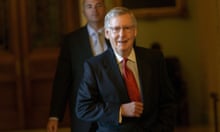
Comments (…)
Sign in or create your Guardian account to join the discussion